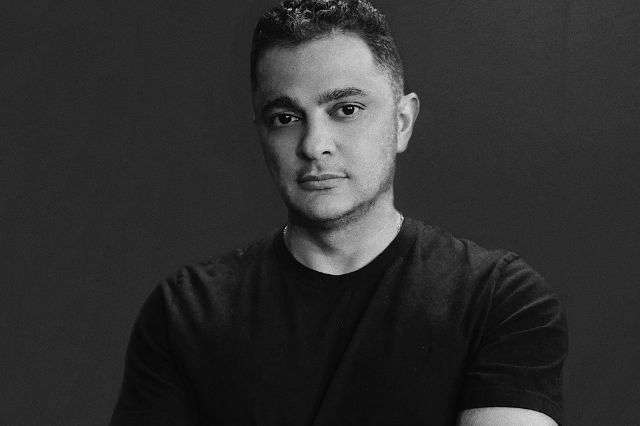Bardya Ziaian, CEO of SITTU Group, on Anticipating Growth Areas of Fintech and A.I.
Bardya Ziaian is a Toronto-based executive and entrepreneur who has specific expertise in the areas of fintech, brokerage services and financial systems.
As an entrepreneur, Bardya has founded several companies, including Robo Advisor, a wealth management company, Virtual Brokers, a discount broker, which was ranked as #1 in Canada multiple times, and SITTU Group, a think tank company. Additionally, Bardya designed and created self-clearing and trading systems in Canada and the U.S.
In his current role as CEO and President of SITTU Group Inc., Bardya leads a team of very selected and talented people whose main goal is to create opportunities based on the current macro environment.
Tell us about SITTU Group, Inc.
Bardya Ziaian: Our name “Sittu” stems from Chinese words “思(Si)途(Tu)” which translates to “thinking while moving forward.” We believe infinite possibilities arise from forward thinking and an agility to anticipate trends in a dynamic marketplace. It is the philosophy we believe and have always adhered to since our inception. Our focus as a think tank is on consulting with companies to design tailored systems that maximize their goals, as well on investing in early-stage businesses.
How can fintech help small businesses survive?
Bardya Ziaian: According to research from Harvard University’s tracktherecovery.org, a nonprofit data project, about 33.6 percent of all small businesses in the U.S. have closed since January 2020. Those businesses often operate on slim margins. We believe, and we’ve seen over and over, that when businesses shift from manually emailing, mailing and faxing invoices, and mailing paper invoices for accounts receivable and accounts payable, to automating those systems and auto-reconciling them on the backend — that shift can often be the difference between shutting down and keeping their doors open. So we’ve had success with helping companies implement and adapt to the automation of their AR, AP and other accounting processes.
Are you concerned about the drop off in Fintech deals so far in 2023?
Bardya Ziaian: It’s true that total fintech funding, and the number of fintech deals globally, dropped from $63.2 billion across 2,885 deals in H2’22 to $52.4 billion across 2,153 deals in H1’23. It’s a sharp drop-off since its height, and really, it’s leveling off to where it was pre-pandemic. It’s concerning to be sure, but I think there are some market corrections in crypto and other areas that are the main contributors. We at SITTU are encouraged that, despite all this market turbulence and decline in funding deals, here in the Americas we saw fintech funding climb from $28.9 billion in H2’22 to $36 billion in H1’23. There are infinite possibilities for growth, and our focus is on being agile enough to identify those growth areas and capitalize on them.
How is access to fintech changing the financial services industry?
Bardya Ziaian: It’s a revolution in the sense that self-directed investors, or SDIs, have access to all the tools for investing that until very recently were only in the hands of professionals. Those tools are designed to be very user-friendly and to give SDIs the confidence to build their own portfolios and manage their own goals. But even as we automate those tools, we’re constantly reminded that investing is not a hobby, like fantasy sports or something like this – it’s a profession, it’s not something you can expect to dive into and thrive on your own. The need for financial advisors will not diminish just because the tools allow for more personalization and increased access to platforms.
How will the growth of AI affect fintech?
Bardya Ziaian: We’re seeing the rapid development of AI in the user experience and the tools available on these new platforms for investing. Once they’ve all integrated the best AI available, and the tech continues to evolve, it’s going to transform fintech and the financial industry in ways that are hard to predict. We at SITTU are committed to anticipating these changes and helping the companies and start-ups we consult with to maximize their potential for growth. We know that with its ability to automate so many tasks formerly handled by humans, AI will reduce or eradicate many banking costs, as well as improve the detection of fraudulent account activity, shutting down an account before huge amounts of money are lost. As those cost-savings become more well-known, we’re going to see more and more AI-drive innovations.
What are the coming trends in fintech?
Bardya Ziaian: We’re going to see a lot more hyper-personalized tools in areas like personalized banking, in Machine Learning integration with predicting stock markets, with chatbots becoming more of an integral, and intimate, tool for communication with banks and investment firms. Right now, 70% of financial services are already using ML for fraud protection and other areas. That’s only going to grow as potential use cases for generative AI in areas like cybersecurity and wealthtech are explored.
What are some areas where you’re seeing growth opportunities for SDIs?
Bardya Ziaian: I think SDI’s are becoming more and more attracted to alternative asset investment options for their retirement accounts, particularly in areas of private equity, real estate and crypto. With the continued growth of the gig economy and less employer-driven IRAs, people are having to take ownership over their own retirement funds. And they’re spooked, and rightly so, by all the volatility in public securities. With fintech tools allowing them specialized access to these private investment areas that have traditionally been accessible only to institutional investors or huge pension funds or endowments, they’re able to have a lot more options to grow their IRAs in more stable and secure areas – particularly in REITs (real estate investment trusts).
What’s your dream innovation for fintech?
Bardya Ziaian: For me personally, I’ve always wanted to invent a new fintech application that would streamline the way businesses make investments. I enjoy conceptualizing and designing tools for investment, and there are so many ways to make the process more efficient and lucrative for business users.
Do you have any business advice you’d like to share?
Bardya Ziaian: Read. Never stop reading and learning about your discipline and your interests, and about new ways to achieve your goals. For me, I enjoy and recommend Ray Dalio’s books. I also always recommend The Intelligent Investor by Benjamin Graham. It is a book about value investing and teaches strategies on how to successfully use value investing in the stock market. Reading is part of the principle of remaining vigilant, of never being complacent in your career and in your goals.





